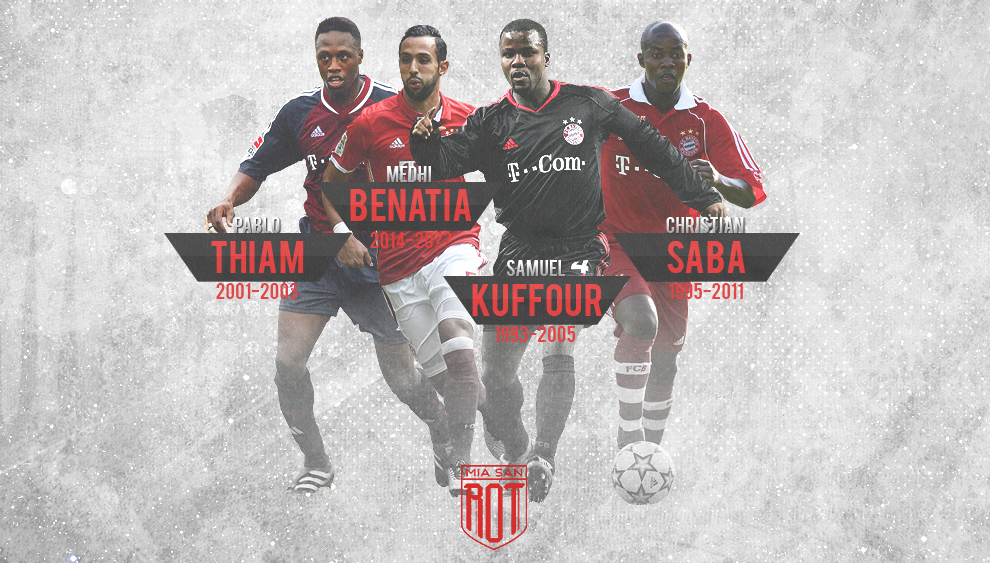FC Bayern’s history of African players
NOTE: This article was written by Eskender Tamrat. Some of his other work can be found at the Bundesliga Fanatic and of course you can follow him on Twitter.
Meanwhile, for the seventh tournament in a row, Bayern Munich will not supply any of the 368 players who’ll represent their countries in the competition that coincides with AFCON’s 60th anniversary. But there is no short of tales involving African players and Die Roten down the years. From two Ghanaian mainstays to the defender currently on loan at Juventus, the ongoing story of African players at Bayern has a little bit of everything.
The defense general
The last player to grace Africa’s premier competition as a Bayern player, Samuel Kuffour reached the pinnacle of his career with Bayern at the turn of the millennium. Since returning to the club after a brief loan spell at Nuremberg in 1996, Kuffour enjoyed nine successful seasons in Bavaria. With six league titles, two domestic doubles and a Champions League redemption to their name, Bayern finished trophyless in only two seasons in that time span.
The hard-tackling defender netted 10 goals in 277 appearances for Bayern, including his first against Spartak Moscow in his Champions League debut that saw him held the record for the youngest defender to score in the competition for some eight years. To that he added the extra-time winner in the laborious Intercontinental Cup victory against Boca Juniors in 2001.
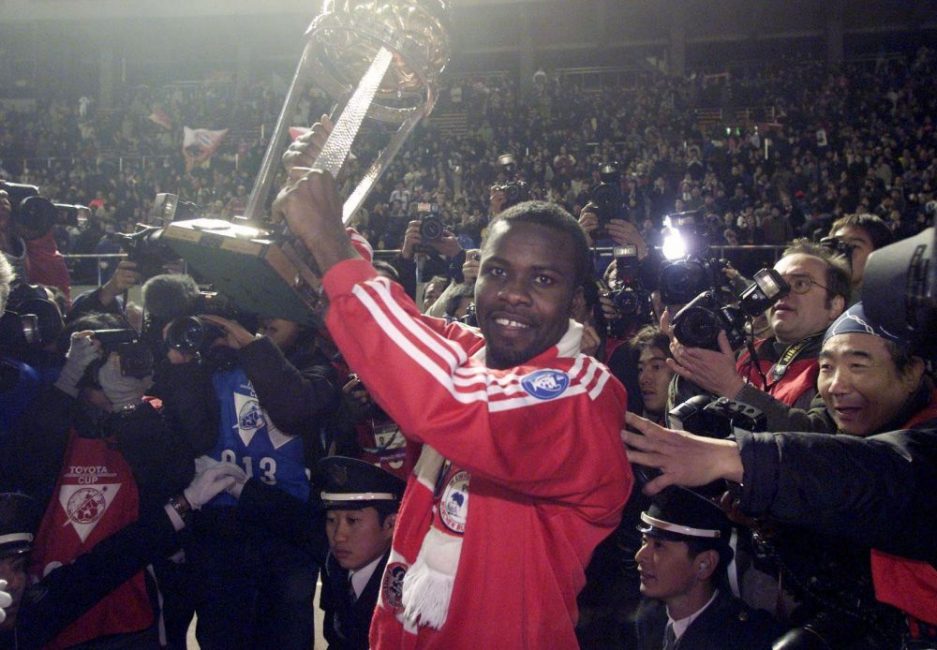
(Photo: Alexander Hassenstein/Bongarts/Getty Images)
However, his most memorable moment came from the iconic despair he was in following the dramatic defeat of the 1998-99 Champions League final to Manchester United. Kuffour would love to erase that night from the footballing records, but the scenes in which the tearful Ghanaian international hit the Camp Nou ground were immortalized to showcase the other side of the injury-time comeback by Sir Alex Ferguson’s side.
Starting from the junior level to the Olympic team, Kuffour played for every level of the national team setup before becoming the first team captain at the age of 23. But unlike his time with the youth sides, where he won medals at U17, U20 and U23 levels, Kuffour’s time with the Black Stars was hardly successful. He was sent home from the 2002 AFCON over a breach of violence, and also dropped to the bench after the opening fixtures of both the continental and World Cup championships in 2006 while he was at Rome.
Kuffour featured in four AFCON tournaments, but Ghana weren’t able to go any further than the quarter-final stage with the physically imposing defender in their backline. After retiring from football after a brief spell at his hometown club Asante Kotoko in 2009, Kuffour is now working as a pundit for South Africa’s SuperSport channel, and his passion for Bayern has not dropped a bit.
Stalwart for the reserves
Although no one in the continent came close to repeating his feat, Kuffour is not even the longest-serving Bayern player from Ghana, let alone Africa. Bayern’s current U16 assistant coach, Christian Saba, spent 16 years at the club after joining its youth system in 1995 at the age of 16. He did feature alongside Kuffour in the 1996 Olympics, but any hopes of a defensive partnership with his compatriot at club level didn’t materialize, as Saba left the club without making an appearance for the first team.
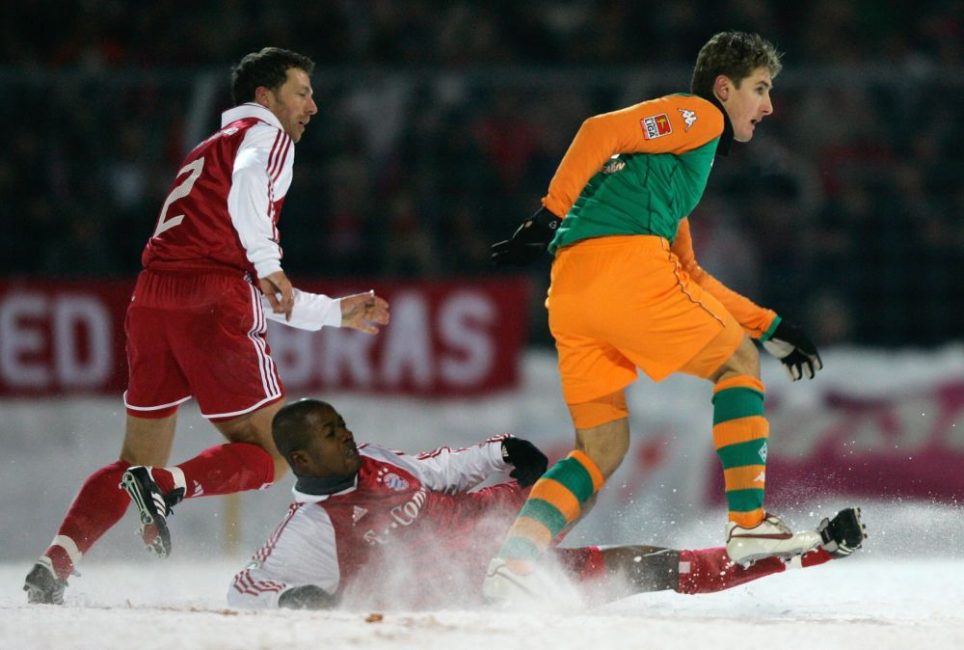
(Photo: Friedemann Vogel/Bongarts/Getty Images)
Saving brief loan spells at Hertha Berlin and Arminia Bielefeld, the former of which gave him his only 10 minutes of top-flight action, Saba spent his entire career marshaling Bayern Munich II’s defense in Regionalliga Sud and 3. Liga, racking up 342 appearances in total. He was an unused substitute in eight matches for the first team, including seven times in October and November 2006.
Struggling for playing time
Saba emerged from the Ghanaian U17 team who won the World Championship in 1995, repeating the feat achieved by Kuffour and co. four years earlier. That team was captained by Emanuel Bentil, who scored the decisive goal in the win against Brazil in the final. Bentil signed for Bayern following the tournament but failed to make the leap to the first team in his three years stay at the club. A stark contrast to Saba’s career, Bentil played in four continents before hanging up his boots in United States at the delicately named Hollywood United Hitmen in 2012.
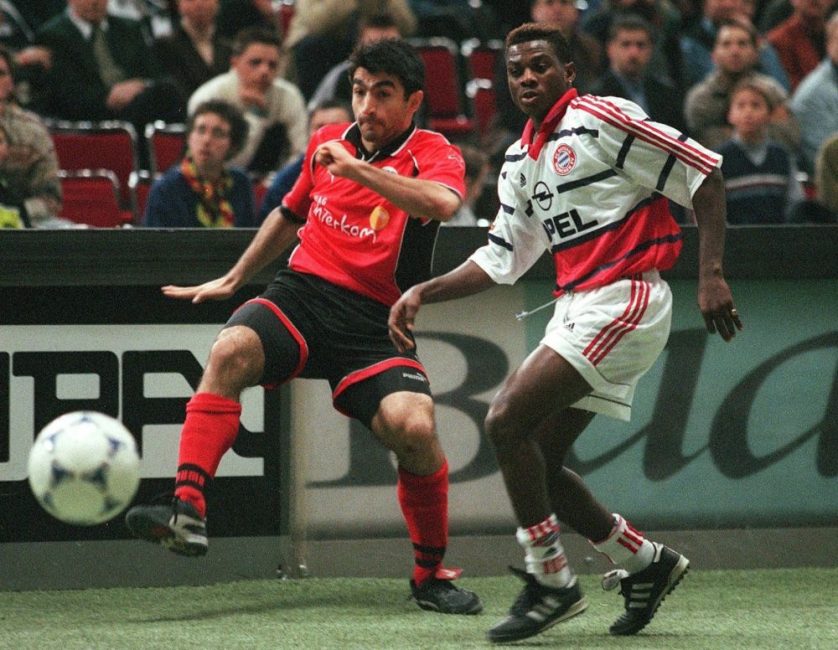
(Photo: Martin Rose/Bongarts/Getty Images)
Zambian midfielder Andrew Sinkala had been on the same path after joining Bayern from his local club Nchanga Rangers in 1999. He did find relative success with a number of German clubs after being released by Bayern two years later, however, and featured in four AFCON tournaments, including his maiden competition in 2000 when he was a Bayern player.
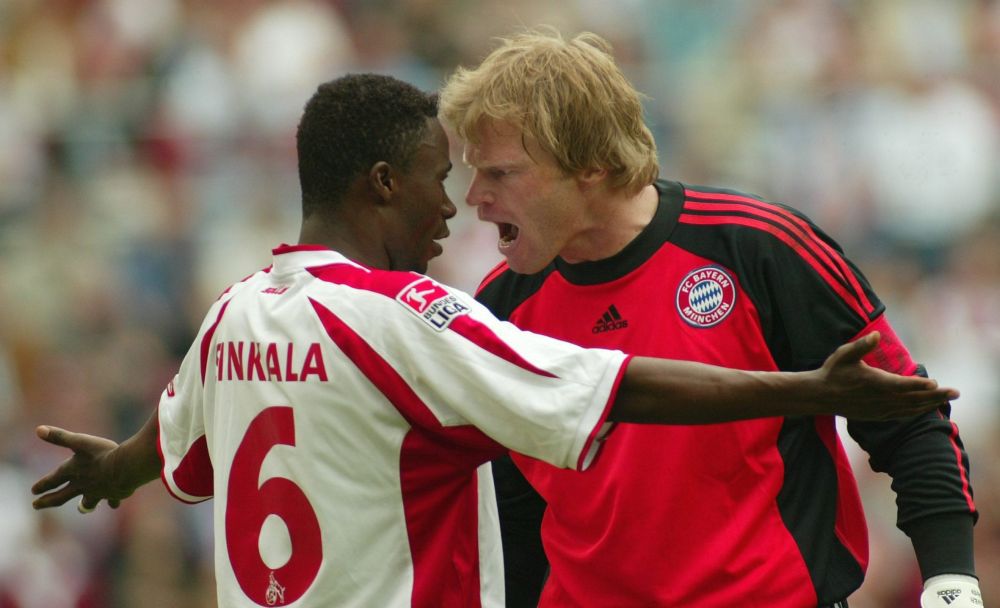
(Photo: Vladimir Rys/Bongarts/Getty Images)
As opposed to the aforementioned players, Guinean midfielder Pablo Thiam arrived at Bavaria courtesy of his form for fellow Bundesliga side VfB Stuttgart, including a goal in a win against Ottmar Hitzfeld’s Bayern. He did see his fair share of playing time in his first half of the season at Bayern, but he departed for Wolfsburg after making a mere one league start in 2002. Thiam is currently the sporting director of Wolfsburg’s second team after retiring at the Lower Saxony club.
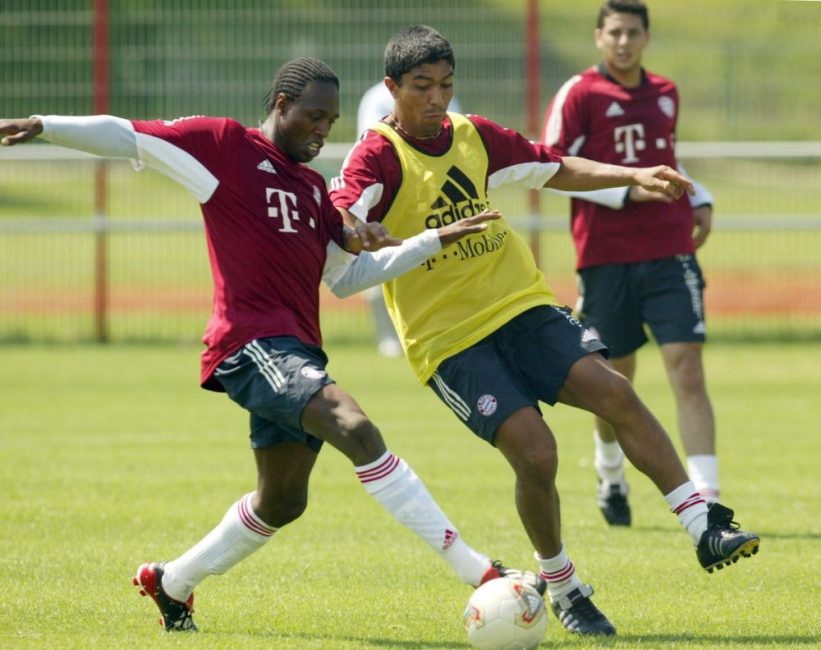
(Photo: Alexander Hassenstein/Bongarts/Getty Images)
Medhi Benatia also had a decent start to his Bayern career following his switch from AS Roma, but he had to be shown the exit door with successive injury problems nagging his two-year stay in Germany. He has a contract at Bayern that runs until 2019, but Juventus could activate their option to buy the Moroccan defender. The Old Lady will miss his services in the coming weeks, as Benatia hopes to lead his nation to glory in Gabon after two successive group stage exits.
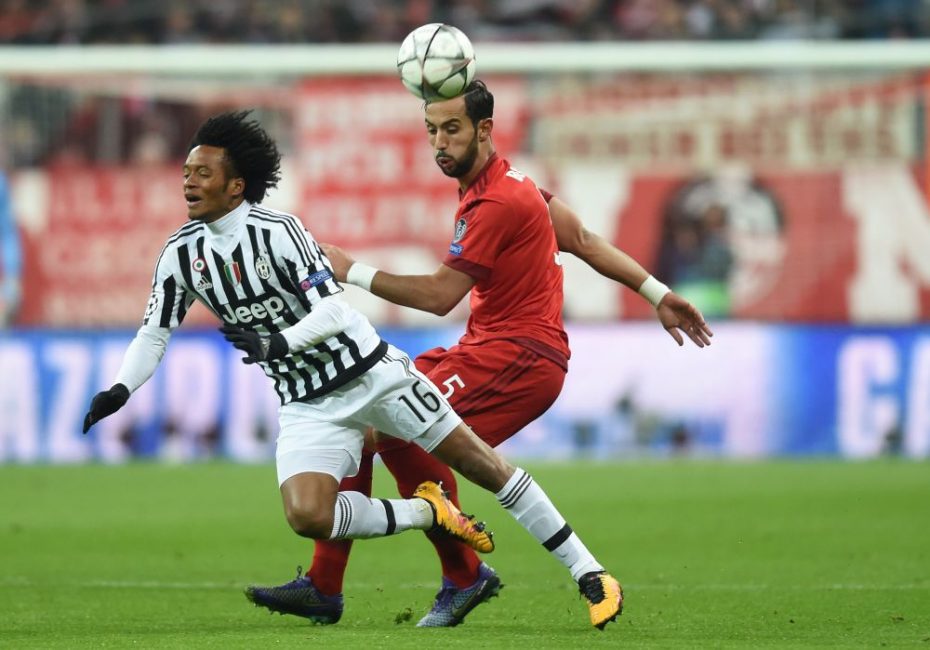
(Photo: CHRISTOF STACHE/AFP/Getty Images)
Passport troubles
According to Benatia, fabricated news in the media was one of the reasons that made his stay at Bayern the “most difficult two years of my career”. He was accused of leaving his passport at home ahead of a trip to Benfica for a Champions League knockout tie, although defended himself via Facebook, saying he was injured.
Another passport issue lead to a only self-indictment of FC Bayern at the German FA (DFB) in the club’s history, with the risk of an enforced relegation for the FC Bayern reserves. Louis Ngwat-Mahop’s just finished the season 2006/07 with 7 goals scored in 33 games started for the reserve team, which earned him a three minute appearance in the first team against Energie Cottbus on the 33rd match day. Bayern’s following Asian tour in the summer of 2007 led to the realization that Louis Ngwat-Mahop’s passport number was identical to that of a woman residing in Paris. After only a single appearance for Bayern, he managed to convince a certain Giovanni Trapattoni in his trial period at Red Bull Salzburg. He even returned to Germany for a brief spell at Karlsruhe SC in 2011-12.
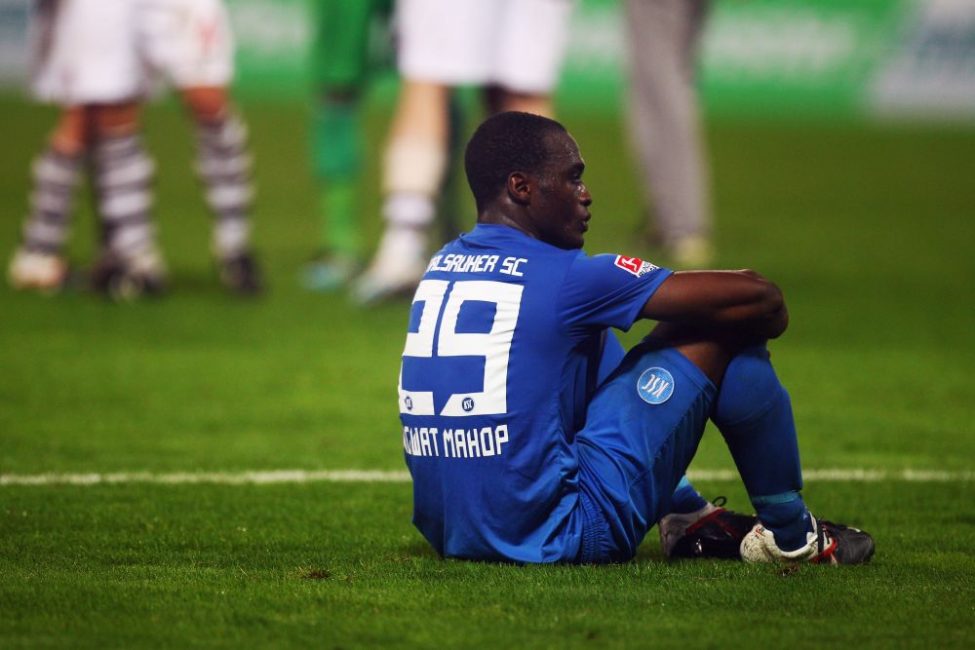
(Photo: Alex Grimm/Bongarts/Getty Images)
Imposing opponents
To end our journey on a sour note, African players from opposing teams have also had their say on Bayern’s history. Bayern Munich has been on the losing side of five Champions League finals, losing as often as they have won. Two of these such defeats were partly thanks to goals scored by African superstars. Five years after opening the score in Algeria’s shocking World Cup win against West Germany, the mercurial Rabah Madjer scored a memorable back-heel in Porto’s comeback victory in 1987 European Cup final.
And exactly half a century after Udo Lattek’s side defeat in Vienna, Bayern fans were treated to a crushing Champions League final in Allianz Arena. Two minutes from time, and from Chelsea’s only corner-kick, Ivory Coast international Didier Drogba canceled Thomas Muller’s opener with a thumping header before scoring the decisive penalty-kick in the shootout, leaving the home supporters stunned in silence.

